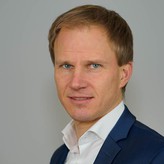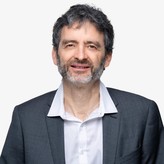- We decarbonise
- Electrical + thermal area networking / Energy Hub
- Enhanced energy efficiency performance
- On the path to CO2 reduction
- Electromobility
- Building renewal
- Energy and network management
- Energy consumption analyses
- Energy efficiency
- Energy management concepts
- Energy management as per ISO 50001
- Supporting the revision of the energy framework documents
- Energy simulation
- Energy storage
- Energy strategy
- GEAK® Energy Portfolio Analysis
- Commercial refrigeration systems
- Major energy consumers
- Climate-adapted outdoor spaces: heat reduction, sponge cities and biodiversity
- Replacement of heating systems
- Wood energy
- Industrial refrigeration systems
- Industrial heat pumps
- Climate adaptation in municipalities
- Climate plans
- Climate-adapted summer thermal insulation
- Performance gap analysis
- Photovoltaics
- Solar heat
- Thermal networks – district heating and cooling
- Interconnection for self-consumption
We decarbonise
Amstein + Walthert is fervently committed to the decarbonisation of Switzerland’s energy supply. Our experts from various companies in the Amstein + Walthert Group work on interdisciplinary strategic, conceptual, and technical issues that are focused on the needs of our customers.
D as in digital + smart
Digitalisation is also transforming the energy industry. Our solutions are intelligent, networked and transparent. We develop smart results for companies, individual building sites, cities and entire regions.
D as in decarbonised + renewable
Achieve your climate targets by implementing our proposed solutions. Sun, ambient heat, wind, water, wood - there is always a renewable solution free from coal, oil, gas and CO2.
D as in decentralised + networked
The future is decentralised and networked. Energy will be produced, managed and used in a decentralised manner. Networking creates synergies between the various media and ensures the convergence of networks.
Electrical + thermal area networking / Energy Hub
The more diverse the mix of uses a given area has, the greater the potential for networking. The individual buildings or components of an area are no longer pure energy consumers, but become so-called "prosumers" through the use of synergies and networking to producers and consumers.
Through intelligent networking of several buildings with different uses, waste heat can be supplied to other users from the thermal aspect instead of being released into the ambient air. Heat consumers cool down the network and thus provide cold for direct cooling of buildings and processes. As a further component, electrical networking enables the optimised use of locally generated electrical energy.
Energy storage systems enable generation and consumption to be decoupled in time and are thus able to significantly improve the use and system compatibility of renewable energies. Thermal energy can be stored for a short time in heating and hot water storage tanks or seasonally in ground storage systems for later use. The development of electrical storage capacities can dampen production peaks, thereby improving the integration and use of fluctuating renewable electricity sources.
Energy conversion due to surpluses and deficits will play an increasingly important role. We accompany the development of these technologies "power-to-x" very closely with industry partners in order to be able to integrate them as well if required.
An intelligent control level completes the networked system and enables optimised management of the storage facilities and the coordination of energy supply and demand through load management.
In order to further develop the networking concepts, we are in close contact with industry and research partners such as EMPA and are, for example, industry partners in the energy research programme SWEET.
Challenges
- Increased use of locally available, renewable energy potentials
- Reliable and robust system design (no over-engineering)
- Economically competitive transformation (design-to-cost)
Our competences
- Overall energy concepts (master plan energy and media supply)
- Thermal energy systems (district heat/energy networks)
- Electrical energy systems (energy/load management, area concepts)
- Energy storage & energy conversion
- Overall planning/realisation of building services engineering & energy network systems
- Financing Models & Life-Cycle-Costing (LCC)
- Dynamic energy simulations and network modelling (Polysun, Stanet)
- Monitoring and optimisation during operation
- Strategic support in implementation and operation
Our services cover the entire life cycle of an area, neighbourhood or network - from the concept, planning and implementation phases to the operating phase.
Enhanced energy efficiency performance
Increases in energy efficiency allow enterprises, real estate owners and tenants to profit now and in the future from clear economic and ecological advantages. We carry out energy-consumption analyses to identify possible ways of achieving greater efficiency. We then use our results to derive practical measures for increasing energy efficiency. We plan the successful implementation of the measures and monitor their effectiveness.
The aim of our approach is to quickly identify relevant users offering significant potential. The measures we then derive for immediate implementation can be expected to amortise in 1 to 2 years. Our range of services covers the entire process of operation optimisation, from initial systems evaluation to successful solution monitoring:
- Initial evaluation for recording the most important data and systems
- Measurements to assess the effective operation and user behaviour
- Functional testing of important systems and equipment
- Drafting of optimisation measures together with specific system changes
- Implementation support and monitoring
- Effectiveness monitoring
- Introduction of energy-use monitoring for sustainable optimisation
On the path to CO2 reduction
On 6 October 2017, Switzerland ratified the Paris Climate Agreement, which aims to significantly reduce greenhouse gas emissions. The goal of the agreement is to limit global warming to 1.5 degrees Celsius compared to pre-industrial levels. The total revision of the Swiss CO2 Act provides for a staged CO2 reduction in the building sector with limit values and increased CO2 taxes. For property owners and investors, the question of which is the optimal CO2 reduction strategy arises. Carbon due diligence supports asset and portfolio management in balancing CO2 emissions, setting realistic climate policy objectives and optimising property business plans that make sense both ecologically and economically.
CO2 balancing and target setting
- Balancing of CO2 emissions according to Swiss standards (SIA) or international standards (GHGP)
- CO2 benchmarking with comparable properties and portfolios
- Definition of CO2 reduction targets taking into account cantonal, national and international requirements
Development of technical/energy principles
- Building condition analyses including technical maintenance and repair planning
- Building energy certificates including energy consumption and CO2 emissions
- Evaluation of heat generators including comparison of variants and recommendations
- CO2 controlling including CO2 monitoring, analysis and recommendations regarding energy-efficiency initiatives
- Drafting of a sustainability standard for development and acquisition
CO2 modelling including costs, earnings and value
- Definition and modelling of different renewal scenarios and initiatives, taking into account existing maintenance planning
- Definition of model input variables such as energy renewal initiatives for heating, building envelope and technology and the timing of renewal
- Analysis and assessment of model output variables such as CO2 emissions, energy, maintenance and investment costs, as well as the earning power of individual properties and the entire portfolio
- Optimisation of the CO2 reduction strategy at portfolio level: reduction in the portfolio vs. compensation at home and abroad
- Optimisation of business plans at property level: renewal cycles and scope of renewal
Thanks to our holistic approach to CO2 management and a wide range of instruments, we offer unique advice on carbon due diligence throughout Switzerland.
The integrated consideration of climate policy objectives, technical renewal requirements, CO2 reduction potential and economic potential, taking into account costs and earnings, enables the definition of CO2 reduction strategies that create value rather than destroying it.
Electromobility
Electromobility is becoming increasingly important. After all, the number of electric vehicles on Swiss roads every year is on the rise. The energy and infrastructure required for this must be correctly conceptualised during the planning phase.
The Amstein + Walthert Group supports developers, investors, private individuals and municipalities in the realisation of simple to complex charging infrastructures from concept to implementation while taking life cycles into account. Projects are realised on an interdisciplinary basis in order to develop an optimal solution. During the initial project phases, we already consider the charging infrastructure and explore potential combinations with solar-power or battery storage systems.
Our services
- Feasibility studies in existing properties
- AC & DC charging infrastructure
- Concept and planning of the charging infrastructure through to implementation
- Planning of charging management and load optimisation
- Evaluation of partners for implementation
- Comparison and selection of compatible billing solutions
- Coordination of all parties involved and contact persons
- Evaluation of possible subsidies (municipal, cantonal, federal)
Building renewal
The sustainable renewal of existing buildings is a complex but interesting task. We use a standardised procedure to develop the necessary basis for phase-appropriate decision making.
Object strategy
The establishment of an object strategy is a prerequisite for planning a building renewal. This task is usually handled in the framework of a workshop involving the participation of the developer / investor. The possible results include: keep, renew, replace, or sell.
Maintenance and renewal costs
Maintenance and renewal costs are important factors when it comes to developing a cash-flow model and assessing profitability. Depending on the specific requirements, the ascertainment and calculation of the necessary investment costs is carried out using the method of technical-facility depreciation, via key data or estimates of individual building elements.
Strategic report
The strategic report is a compact, but comprehensive three-part document:
- The situation analysis essentially encompasses the current market conditions and the real estate site specifics.
- The object analysis centres on a deeper assessment of the structural and technical condition of the real estate and its - adequacy for various uses.
- The cost-effectiveness analysis focuses on a comparison of the estimated costs of construction measures (object analysis) and the expected returns on investment (situation analysis).
Energy and network management
The Swiss energy supply companies (EVU) operate at the interface between the public supply mandate and market-based services. With the partial opening of the electricity market through the Electricity Supply Act (StromVG), the possibilities to offer market-oriented products have increased on the one hand; while on the other hand, the regulatory requirements have risen significantly.
The Amstein + Walthert Group has many years of experience in providing technical, economic and regulatory support to energy supply companies. Our services range from network planning, tariff setting and cost accounting to electricity procurement on the free market.
Energy industry
- Electricity procurement (basic supply and market)
- Portfolio and risk management
- Distribution strategy
- Product development
- Valuation of production facilities and companies
Network economy
- Asset management
- Fixed asset accounting and cost accounting
- Tariff setting and regulatory management
- Network planning and documentation
- Target network planning
- Metering and Energy Data Management (EDM)
- Assessment of electricity distribution networks
Energy consumption analyses
Carrying out energy consumption analyses (ECAs) allows us to identify relevant energy consumers and ascertain the potential for enhancing energy efficiency. For instance, we identify sources of heat loss and show how this energy can be recovered. Energy consumption analyses provide a basis for drafting optimisation-measures catalogues with cost-benefit calculations and the resulting reduction in CO2 emissions.
We offer the following services in the framework of drafting our energy consumption analyses:
- Identification and representation of the flow of both electrical and thermal energy (heat/cold) in an energy flow diagram
- Measurements (as needed)
- Identification of main consumers and energy flow patterns, including heat loss and temperature levels from the perspective of both production and consumption
- Definition of short, medium and long-term measures to enhance your energy efficiency performance
- Cost-benefit, ROI and CO2 reduction calculations are a continuous feature of our energy consumption analyses.
Energy efficiency
With the adoption of the Energy Act in 2017, which is supported by the Energy Strategy 2050, Switzerland is committed to greater energy efficiency. There is great potential to increase energy efficiency or minimise energy consumption in the areas of buildings, industry and appliances, among others. The building stock in Switzerland consumes around 45% of the country's final energy demand, with great potential in the household, industrial and service sectors. The Amstein + Walthert Group has many years of experience in the fields of energy and buildings. We are familiar with both the conceptual and technical tasks in the planning and during the operating phase.
Our services
- Potential assessment and analysis of building services and process systems
- Energy optimisation of the operation of technical building systems
- Advising on energy efficiency improvement
- Energy monitoring for the collection and management of energy data
- Support in the creation or review of the measurement concept
- Energy consumption analyses (electricity, heat, cooling, water)
- Energy concepts with recommendations for needs-based renovation
- Economic feasibility studies for plant replacement
- Specific energy advice for large-scale consumers (target agreements, CO2 exemption)
- Tailor-made energy advice for small and medium-sized enterprises (SMEs)
- Cantonal building energy certificate (GEAK) for renovation, conversion or new construction
- Advising on the current state of the art technology in legal terms, with regard to regulations (SIA, Minergie, MuKEn) and for possible subsidies
- Trouble shooting with complex, faulty and not user-optimised systems
We are happy to support our customers in their efforts to increase energy efficiency. In doing so, we not only contribute to the environment, but also reduce costs.
Energy management concepts
Energy management concepts typically show a number of viable ways of meeting the energy needs of a building or an entire development site. Working together with our clients, we define criteria of evaluation and alternative plans. The individual plans are quantified and compared to one another. This enables us to specify and recommend the plan that offers the greatest long-term utility. The support we provide in the context of helping you develop an effective energy management concept includes the following services:
- Identification of your present energy needs (temperature levels, output and energy supply volumes) and your future energy needs (e.g. on the basis of possible development scenarios)
- Definition of viable means of energy supply and distribution
- Quantification of the alternative plans with reference to final energy consumption and operating costs (energy, operation and maintenance costs, as well as CO2 emission fees, etc.)
- Comparison of annual costs, space requirements and other factors
- Alternative plan evaluation and final recommendation
It is only by working together with the client and keeping abreast of the latest technological developments that we are able to arrive at an optimal energy management concept. Innovation almost always pays in this regard.
Energy management as per ISO 50001
The Amstein +Walthert Company has obtained certification as per ISO 50001 for the energy management of the Andreasstrasse 5, Zurich site. The basic aim of the ISO 50001 standard is the constant improvement of energy performance within a company.
We would also be delighted to help you introduce an effective energy management system.
Supporting the revision of the energy framework documents
The realisation of the ambitious objectives of federal energy policy, as well as cantonal policies, involves the regular updating of legal frameworks and the documents required for their implementation, such as directives, guidelines for municipalities and professionals, etc.
We support the public bodies throughout the various steps involved in this work, i.e. assessment of and feedback on existing energy policy measures; support in the drafting of directives, guidelines and other documents for the implementation of legal measures; monitoring and support of municipalities and other developers that serve as pilots for the application of the new measures.
Energy simulation
Due to the increasing complexity of building and energy systems, the use of simulation tools has become indispensable in our work. The Amstein + Walthert Group is actively driving these developments. We combine well-founded knowledge from many years of experience in the field of building physics, solar technology, systemic and geothermal simulations. Simulations are increasingly used in early planning phases for potential assessments and variant comparisons, which can be further refined in the subsequent phases. The various simulation areas are increasingly growing together through BIM and synergies can be used.
Our services
Energy systems
- Simulations of electrical and thermal networking of buildings and areas
- Optimised dimensioning of components
- Design and profitability assessment of photovoltaics, electromobility, decentralised electricity storage and ZEV (interconnection for self-consumption)
- Comparison of variants and testing of scenarios
Geothermal energy
- Energy and cost-optimised dimensioning of geothermal probe systems
- Proof of temperature over a longer period of time for approval procedures
- Monitoring for monitoring the geothermal probe system in operation and, if necessary, further simulations due to changes in use
Building physics
- Dynamic thermal building simulations for total energy demand and indoor climate
- Flow simulations for detailed analyses of room comfort
- Dynamic heat and moisture transfer simulations for constructions
- Thermal bridge calculations
We are happy to provide support with our range of simulations for questions relating to the planning and realisation of individual buildings and energy systems through to entire sites.
Energy storage
Within the framework of the Energy Strategy 2050, solar energy plays the most important role in the field of new renewable energies. The major expansion of solar power is intended to substitute for the loss of nuclear energy without significantly increasing the dependence on imports for electricity. Solar heat as a source of seasonal heat storage in district heating networks, areas and individual buildings should make a significant contribution to the decarbonisation of the heating sector in Switzerland.
The Amstein + Walthert Group is involved in cross-industry organisations such as the Forum Energiespeicher Schweiz (FESS) and the Wärmeinitiative Schweiz (WIS) in order to help shape and drive forward the decarbonisation of the energy sector as well as the reliable and sustainable supply of electricity and heating/cooling. In countless projects, from the energy concept and planning to technical construction management and operational supervision, we find solutions adapted to the situation in order to implement the goals of the energy strategy. We can apply our extensive experience to new projects again and again, in the interest of our clients.
Our services
- Potential studies and simulations for renewable energy systems with sector coupling and battery storage / seasonal heat storage systems
- Overall energy concepts for heat/cooling and electricity for
- areas (Multi Energy Hub)
- individual buildings in new constructions and renovations
- concepts, planning, tendering and specialist construction management for
- solar power systems with battery storage, e-mobility charging stations and ZEV
- building-integrated solar systems (BIPV), folding solar roofs and ground-mounted systems
- renewable district heating networks with solar heat injection and heat storage
- neighbourhood storage in public power supplies
- concepts for seasonal energy storage with Power-to-X technologies
Energy strategy
Amstein + Walthert offer comprehensive strategy consulting.
Such strategies are developed in an interactive, participative process and include the following elements:
- Formulating a vision
- Analysis: Framework conditions, technical, political and economic challenges, stakeholders, SWOT, and opportunities
- Organisation of the issues and fields of action and their interrelationships
- Definition of concrete goals and measures
- Support and monitoring for implementation
Energy and decarbonisation strategy for companies, municipalities and cantons
Replacing fossil fuels is a major lever for reducing CO2 emissions. The energy supply trilemma calls for renewable energy to be available at all times and at favourable prices. A decarbonisation or energy strategy (ideally linked to the corporate strategy) first determines the company’s unique starting position before formulating the principles for the action options of efficiency, electricity, heating/cooling and mobility. Objectives and measures can then be jointly formulated.
Owner's strategy for municipalities
Municipalities and cantons that are owners of an Energy Utility Company (Energieversorgungsunternehmen (EVU)) should formulate in an owner’s strategy the objectives that their Energy Utility Company should achieve in the medium term. Considerations must include the implementation of energy policy objectives, the resolution of conflicts of interest between the public sector and the Energy Utility Company, and the principles of corporate structure. The owner’s strategy serves as a guiding compass, helping the Energy Utility Company to concretise the corporate strategy.
Corporate strategy for Energy Utility Companies
The corporate strategy should be updated every few years. During this update, the vision, current framework conditions and challenges are reviewed, and the fields of action updated or redefined. Objectives and measures can then be developed. One consideration is the method of informing employees about the updated or new strategy.
Current technical and political developments, along with the specific starting position of the Energy Utility Company, are crucial for the development of the strategy.
GEAK® Energy Portfolio Analysis
Objective of the cantonal building energy certificate (Gebäudeenergieausweis der Kantone, GEAK®) for large property owners
- The energy status of the properties has been assessed.
- Basic recommendations for renewal measures for strategic decision-making in investments are available.
- The energy development status of the properties compared to the portfolio strategy is shown.
- An energy portfolio analysis based on the GEAK® assessment has been prepared.
The procedure: with the help of the GEAK® in four steps to an energy portfolio analysis
After selecting the buildings to be assessed (suitable buildings are apartment buildings, administrative buildings, school buildings), plans and lists of installations as well as the measured energy demand of the properties are reviewed as a basis. The on-site inspection substantiates the data and enables the GEAK® calculation. GEAK® assesses the building shell, the building services installations and the electrical appliances and recommends measures to increase efficiency.
In a next step, the results are presented and evaluated collectively. The evaluation criteria can be the type of property, the size, the age and the geographical location. The simple energy assessment by the labels enables a clear and understandable presentation and helps to implement the portfolio strategy in the areas of energy efficiency and climate protection.
Benefits
Across Switzerland and standardised
Thanks to an easily recognisable label, visually comparable to energy class labels introduced throughout Europe, building owners and tenants can compare the energy efficiency of buildings. GEAK® is offered throughout Switzerland and in three languages.
Increasing energy efficiency
GEAK® reveals weak points in the area of the building shells and building technology and provides recommendations for the implementation of optimisation potential.
Portfolio evaluation
The energy policy framework conditions and strategies form the basis for the portfolio strategies to be defined in the real estate sector in the areas of energy efficiency and climate protection.
The GEAK® assessment and the subsequent portfolio evaluation make it possible to compare the development trend with the Federal Council's energy strategy for buildings in terms of energy efficiency and greenhouse gas emissions.
Advisory report: GEAK®-Plus
GEAK®-Plus offers additional, standardised services that serve the building owner as a decision-making basis for a renovation strategy.
In contrast to GEAK®, GEAK®-Plus compares and contrasts different variants for increasing efficiency. An initial estimate of the investment and maintenance costs as well as the savings in operating costs, together with the neutral advice of our certified GEAK® experts, help in the selection of energy renovation measures.
The GEAK® assessment shows the energy efficiency of each property and identifies the weak points of the building shell, the building services and the electrical consumers. In a further step, the building portfolio is evaluated in terms of energy efficiency and thus made comparable. The elaborated proposals for improving energy efficiency form an important basis for the planning of modernisations and through the portfolio evaluation a prioritisation is possible. The transparency of the ancillary costs and the comparable energy classes will also improve the lettability of the properties. Our certified GEAK® experts provide independent advice throughout Switzerland.
Commercial refrigeration systems
The scope of commercial refrigeration includes small to medium-capacity refrigeration systems that supply cooling for the storage of goods at low to very low temperatures. The range of applications is extensive and our clients include food service companies, supermarkets, meat markets, bakeries and many other enterprise types.
Achieving the highest level of energy efficiency has come to play an ever more important role for our clients. The selection of an appropriate refrigerant to match the system concept can have a major impact on the cost effectiveness of the implemented refrigeration system. The effective utilisation of waste heat now plays a central role in the planning of all refrigeration systems.
Major energy consumers
According to the Swiss Energy Act and the various cantonal energy ordinances, major energy consumers in Switzerland are required to reduce their CO2 emissions and increase their energy efficiency by an annual rate of 2%. We have many years of experience when it comes to advising major energy consumers in matters of energy management. We analyse your energy consumption, identify optimisation potential, and assist you in drafting target achievement plans or carrying out an energy use analysis as well as in implementing the optimisation measures to increase energy efficiency performance. We make sure that you reach your efficiency goals.
We offer the following specific services in the framework of advising major energy consumers:
- Analysis of current states, including an evaluation of buildings and technical facilities
- Analysis of energy flow (energy flow diagram)
- Identification of potential for increasing energy efficiency and lowering CO2 emissions
- Drafting of near, medium and long-term measures and cost-benefit analyses
- Provision of support for the implementation of optimisation measures
- Efficiency increase Monitoring
- Drafting of annual reports for submission to canton
- Operational support, coaching and technician training
Climate-adapted outdoor spaces: heat reduction, sponge cities and biodiversity
Our summers are becoming drier and hotter, and extreme events such as heavy rainfall are on the rise. Cities in particular act as heat islands, where temperatures can be up to 7 degrees higher than in the surrounding areas. What can we do to ensure that our cities remain liveable in the future? The credo is ‘more green and blue instead of grey’: plant large-crowned trees that are suitable for the location, plan water-permeable, green spaces and provide for natural rainwater management. It is important to design green spaces in a natural way in order to promote biodiversity.
The earlier and more specifically we adapt to climate change, the lower the damage and associated costs will be.
Our services
Thanks to our comprehensive range of services, we support a wide variety of clients:
- Conseil dans le processus de planification et de construction
- Architecture et aménagements extérieurs
- Promotion de la biodiversité
- Végétalisation des façades et des toitures, également en combinaison avec des panneaux photovoltaïques : toiture biosolaire
- Analyses de potentiel et concepts de réduction de la chaleur, de ville éponge et de biodiversité pour les espaces extérieurs et les quartiers
- Élaboration et évaluation de critères dans le cadre de concours et de mandats d'étude
- Simulation du confort estival selon les scénarios météorologiques futurs (réalisés par Météosuisse, selon les scénarios du GIEC) ; SIA 180
- Simulation d'îlots de chaleur dans des zones et des quartiers (microclimat)
- Soutien dans le cadre de certifications pour la construction durable selon SNBS-Quartier et Minergie-Quartier
Replacement of heating systems
Do you own a property with more than 1,000 m2 with oil or gas heating?
We can organise the switch from a fossil-fuel-based heating system to a 100% renewable solution for you. This starts with a quick check and extends to a comparison of options and system evaluation through to flawless operation. Allow us to provide you with comprehensive guidance, e.g., clarifying the possibilities of generating your own solar power, optionally in conjunction with an electric vehicle charging station.
Wood energy
The use of forest wood and the orderly combustion of untreated industrial and construction wood form a considerable potential for local, renewable and CO2 neutral, high-quality energy that has so far only been partially exploited. The temperature level allows direct applications in industrial processes as well as in regional heat supply for direct hot water preparation and space heating. In order to develop and implement a project in an ecologically and economically optimal way, the diverse requirements regarding site selection, logistics and storage must be fulfilled and, in addition, the needs of a phased expansion must be taken into account.
The Amstein + Walthert Group has many years of experience in the design and development as well as the planning and supervision of the construction of wood combustion plants with state-of-the-art gas filtration including heat recovery and long-distance networks. We advise and support our customers comprehensively from the idea to the operation. Several employees are QM wood heating plant certified.
Our services
- Potential assessments and feasibility studies
- Analysis/optimisation of existing wood combustion plants
- Location studies and logistics concepts
- Preliminary clarifications by the authorities
- Determination of total costs and budget requests
- Evaluation of possible funding contributions
- Financing options and profitability calculations
- Overall planning/project planning in the planning team
- Overall management/specialist construction management HVCSE/BA
- Coordination of all parties involved and contact persons
Industrial refrigeration systems
As an experienced engineering firm working in the area of refrigeration systems, we offer tailor-made and energy efficient solutions for your refrigeration needs. We provide our services to enterprises in a full range of industries, including logistics, food production and chemical manufacturing.
Reaching the highest degree of energy efficiency depends on a careful evaluation of the relevant facility concept and the proposed means of refrigeration. We focus on natural refrigerants such as ammonia (NH3), propane or carbon dioxide (CO2). This enables us to realise cost-effective systems for our customers, systems that also achieve the highest degree of energy efficiency while also accounting for future ecological standards.
As an engineering firm, we are independent of suppliers and manufacturers. This allows us to offer cost-effective products that are ideally suited to the needs of our customers.
Given our extensive experience, we know the various strategies and their corresponding advantages and disadvantages. Moreover, we align our services optimally to your existing HVAC and plumbing systems, making sure while doing so to minimise the number of interfaces and therefore lower the associated risks. We offer comprehensive planning services.
Industrial heat pumps
Environmentally sustainable heating has come to play an ever more important role. This applies universally, whether the aim is to heat buildings, supply hot water, realise district heating solutions, enable high temperature applications or supplement existing heating systems. Industrial heat pumps combined with anergy grids often make for ideal solutions. As an experienced engineering firm in the area of refrigeration systems, we are the right partner for all kinds of industrial heat pumps that make use of natural refrigerants such as ammonia (NH3), propan or carbon dioxide (CO2).
Our experience in the design of refrigeration systems allows us to integrate heat pumps into larger systems in an energy-efficient manner.
Climate adaptation in municipalities
In Switzerland, the average temperature has risen by 1.9°C since the beginning of industrialisation. Limiting the rise in temperature is only possible through consistent climate protection measures. But even then, municipalities will have to adapt to the effects of climate change. The effects of climate change are already noticeable and measurable today: greater heat stress, increasing drought and an increased risk of heavy rainfall. These effects will intensify in the future and affect various areas in a municipality, such as:
- Buildings: Increasing cooling requirements
- Forestry: Ash dieback
- Health: heat-related deaths and new pathogens (e.g. tiger mosquitoes)
- Water management: flood damage due to surface runoff
The earlier and more targeted our adaptation to climate change, the lower the damage and associated costs will be.
Our services
- Climate strategy and action planning (climate protection and climate adaptation)
- Support for Chapter 7 as part of Energy City
- Climate change impact analysis
- Potential analyses and concepts for heat reduction, sponge cities and biodiversity in the municipal area
- Presentations, guided tours, workshops and writing articles
Climate plans
Municipalities play a key role in the fight against climate change. By planning aspects that are related to land use, biodiversity, mobility, energy and citizen transport, municipalities can mitigate the effects of climate change while helping to reduce its causes. In this way, the quality of life of citizens can be improved.
Amstein + Walthert has many years of experience in supporting municipalities.
Climate-adapted summer thermal insulation
The summer of 2018 has made us impressively aware that climate change is a fact. Depending on the scenario, an increase in summer temperatures of up to 4.5°C is predicted by the middle of the century. This development will have a serious impact on the construction and operation of buildings. In the future, we will have to heat less in winter, while in summer, it will become more and more of a challenge to stay comfortable.
The ClimaBau study primarily identifies the window proportion and the thermal storage mass as decisive planning parameters with regard to the comfort and the climate cooling demand of residential buildings. Furthermore, the efficiency of sun protection and night cooling must be ensured, for example through automation.
Moreover, combating the symptoms of climate change is not only useful for individual buildings, but already in urban planning. To mitigate urban heat islands, measures such as taking into account natural cold air flows and shading, promoting green spaces, reducing sealed surfaces and using light-coloured surfaces are suitable.
For climate-adapted and sustainable construction, ventilation and heating, materials and façade concept, room arrangement, sun protection and insulation must be coordinated and optimised as a whole. Integral planning and the inclusion of people as users are the most important prerequisites for sustainable buildings. The Amstein + Walthert Group is the point of contact for comfortable buildings, from strategic planning to urban development, architectural and technical concepts to planning and implementation.
Our services for summer thermal insulation from strategic planning to realisation and management
- Strategies for municipalities, cities and the federal government to adapt to climate change
- Concepts for summer thermal insulation (architecture and technology)
- Thermal simulations of rooms and buildings (including with IDA-ICE)
- Outdoor space concepts for new buildings, conversions and redesigns
- Inventories, planning of measures as well as planning and implementation support for near-natural and climate-adapted outdoor spaces
- Definition of sustainability requirements for architectural and urban design competitions
- Participation in project teams for architecture and urban planning competitions
Performance gap analysis
The demands placed on the planning of construction projects are constantly increasing. Flexible utilisation concepts, energy efficiency, sustainability, increased comfort requirements and, last but not least, time pressures often make it difficult to achieve the specified performance targets. A building's performance is influenced in all of its life cycle phases by decisions, actions and also failures of the different actors.
Unwanted deviations from defined performance targets lead to a performance gap. Due to the multi-layered nature of the requirements and the complexity of the issues, a systematic approach is needed to assess the performance gap.
The performance gap describes the occurrence of undesired deviations from the defined performance targets. Depending on the focus, this requires different measures and services.
Technical performance gap
- Checking the installations carried out against the concept ordered
- Comparison of the planning values with the actual data set for the building technology
- Installation of an automated test system for continuous control of the control loops
- Differences between planning and execution are checked and documented on site (target/actual comparison)
- Quality assurance of the construction documentation
- Proposal of measures to close gaps
Energy performance gap
- Checking the measurement concept
- Comparison of the operating data with the planning values
- Reporting and interpretation of the differences between forecast and real measured energy consumption/energy costs
- Proposal of measures to close gaps
- Monitoring the measures to be implemented
- Success control
- Leading the quality management
Comfort performance gap
- Metrological verification and documentation of planning requirements during operation
- Identifying the influencing variables of user behaviour
- Measuring and assessing the indoor climate
- (e.g. temperature, relative humidity, CO2)
- Proposal of measures to close gaps
- Monitoring the measures to be implemented
- Success control
- Leading the quality management
During the analysis, we evaluate the requirements and expectations of the stakeholders and jointly define the performance targets and success factors.
Ideally, we monitor the projects in all its construction phases in order to identify the gaps between target and actual at an early stage or even prevent them. In this way, we protect the investments and create clear added value for all parties involved.
Photovoltaics
Consulting
Photovoltaics have taken on greater significance in the area of building systems engineering, particularly since the government approved the private use of energy produced off-grid. Indeed, the Swiss power grid will see major changes in the near future in connection with the decentralised storage of solar power. We know the latest developments on the market and can competently advise you in all matters relating to solar power generation and use.
Our specialists help you to develop and manage your solar power projects by providing the following services:
- Feasibility studies, pilot projects and comparison with alternative plans
- Investment strategies for real estate portfolios
- Private use optimisation
- Building integration
- Developer support and representation
- Facilitation of feed-in remuneration and one-time remuneration options
- Solar power strategies for PSCs
- Proof of origin marketing
- Founding of solar power cooperatives
- Roof use contracts
- Solar installation consulting programmes for energy cities and regions
- Surge arresters and EMC
Architectural design
We offer architectural design services and guarantee cross-discipline competence from the planning phase to the construction phase and onward to the transfer of the photovoltaic installation to the developer. Our range of services includes:
- Submission of applications for building permits, grants and design approvals
- Selection of optimal designs and modules
- Roof load configuration under consideration of snow loads, wind and dynamic pressure as per SIA 161
- Design and calculation of internal and external surge arresters
- Measurements, commissioning and maintenance
- Yield monitoring
- Thermography for purposes of analysis and error detection
Solar heat
The significance of solar thermal applications has increased in recent years, especially in connection with their role in the operation of geothermal heat pumps. The ever more dense installation of heat pumps in developed areas has led to a gradual cooling off of the ground, as not enough energy flows back to the geothermal source. The use of photovoltaic modules or unglazed solar absorbers to regenerate the ground in the summer creates a seasonal storage effect and thus enables higher annual output figures for heat pumps -- an efficient, cost-effective and sustainable solution.
Feeding solar heat into integrated heating systems and anergy grids offers tremendous potential and has become ever more common in Europe.
We help you to realise solar thermal systems with high capacity factors by providing support when it comes to concept development, feasibility studies, pilot projects, design, tendering and Installation.
Thermal networks – district heating and cooling
With district heating networks, heat consumers or entire communities, neighbourhoods, cities and regions can be supplied with heat from one or more large heat sources. Useful heat sources are waste incineration, waste heat from thermal power plants, industrial processes, wood chips, sewage treatment plants, geothermal energy, groundwater, surface water and environmental heat. The potential of renewable and CO2 neutral, high-quality energy can thus be made available to the end customer. The existing technologies allow direct applications in industrial processes as well as in regional heat supply for direct domestic water treatment and space heating. In order to develop and implement a project in an ecologically and economically optimal way, a wide range of influencing factors such as connection density, an optimal thermal-hydraulic network design, seasonal and geographical effects as well as the needs of the heat customers must be taken into account, among other things. The analysis and optimisation of existing networks is also becoming an increasingly important factor and contributes to the economic efficiency of the networks.
The Amstein + Walthert Group has over 20 years of experience in the design and development as well as planning and supervision of district heating and cooling networks. We are happy to provide our customers with comprehensive support from the initial idea to operation, including the optimisation or expansion of existing thermal grids and their challenges.
Our services
- Potential assessments and feasibility studies
- Analysis/optimisation of existing transmission networks
- Determination of total costs and budget requests
- Evaluation of possible funding contributions
- Financing options and profitability calculations
- Overall planning/project planning in the planning team
- Specialist planning of pipe statics/pipeline construction
- Thermohydraulic network calculation/network simulation
- Overall management/specialist construction management HE/GA
- Preparation of technical connection conditions for end users
- Coordination of all parties involved and contact persons
Interconnection for self-consumption
Solar energy is considered the most important renewable energy source of the future and thus a prerequisite for a successful energy transition. Since 01 January 2018, it has been possible to use solar energy jointly, decentrally and profitably within the framework of an association for self-consumption. The Amstein + Walthert Group has many years of experience in the optimal design, integration and joint use of solar energy in interaction with the building envelope and technology. We will find the right solution for you, from the initial assessment of potential to the recording and billing of the solar electricity you produce and consume yourself.
Our services
- Foundation, organisation and operation of an interconnection for self-consumption
- Potential assessments, feasibility studies and project planning (preliminary project stage)
- Advice and planning for local energy supply, distribution and storage
- System integration of different media and of producers and consumers
- Pricing and profitability calculations
- Self-consumption optimisation and load management
- Simulations for self-consumption optimisation and optimal integration into building technology
- Measurements
- Statements
- Energy monitoring and controlling
We are happy to support you with questions about individual solar energy use, self-consumption optimisation or the realisation and implementation of an interconnection for self-consumption.

































